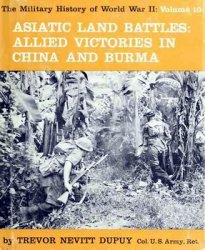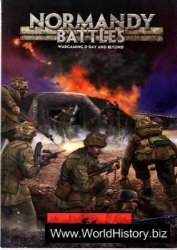The situation was worse still between the area from north-west of Belgorod to the Sea of Azov, over a front of about 650 miles defended by Manstein:
"On July 17 our 29 infantry and 13 armoured or motorised divisions were facing 109 infantry divisions, nine infantry brigades, ten tank, seven mechanised and seven cavalry corps, plus 20 independent tank brigades, 16 tank regiments and eight anti-tank brigades. Between that date and September 7 these forces were increased by 55 infantry divisions, two tank corps, eight tank brigades, and 12 tank regiments, most of them brought over from the Central and the North Fronts. All in all we must have been outnumbered by seven to one.
"This superiority allowed the Russians not only to go on to the offensive with overwhelming power, often in several places at once, but also to make up their losses, even when very heavy, in an astonishingly short space of time. Thus between July and September, they were able to withdraw from the front 48 divisions and 17 tank corps and reform them, some of the formations even twice, as well as providing reinforcements for all their divisions of up to ten per cent of their fighting strength.”
This, according to the Soviet command, was the tally of the Red Army’s strength on the South, South-West, Steppe, and Voronezh Fronts: 21 armies facing the one German Army Group "South”. Manstein, whose 1st Panzer-armee was being driven back at Slavyansk as Tolbukhin was trying to make a breakthrough over the Mius river, was now driven to extremes.
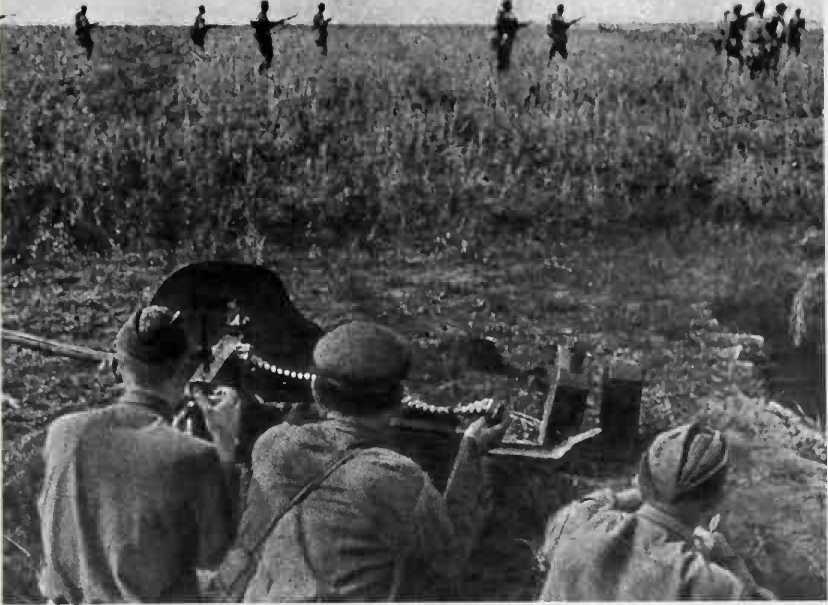
H I.-V z'/** •,
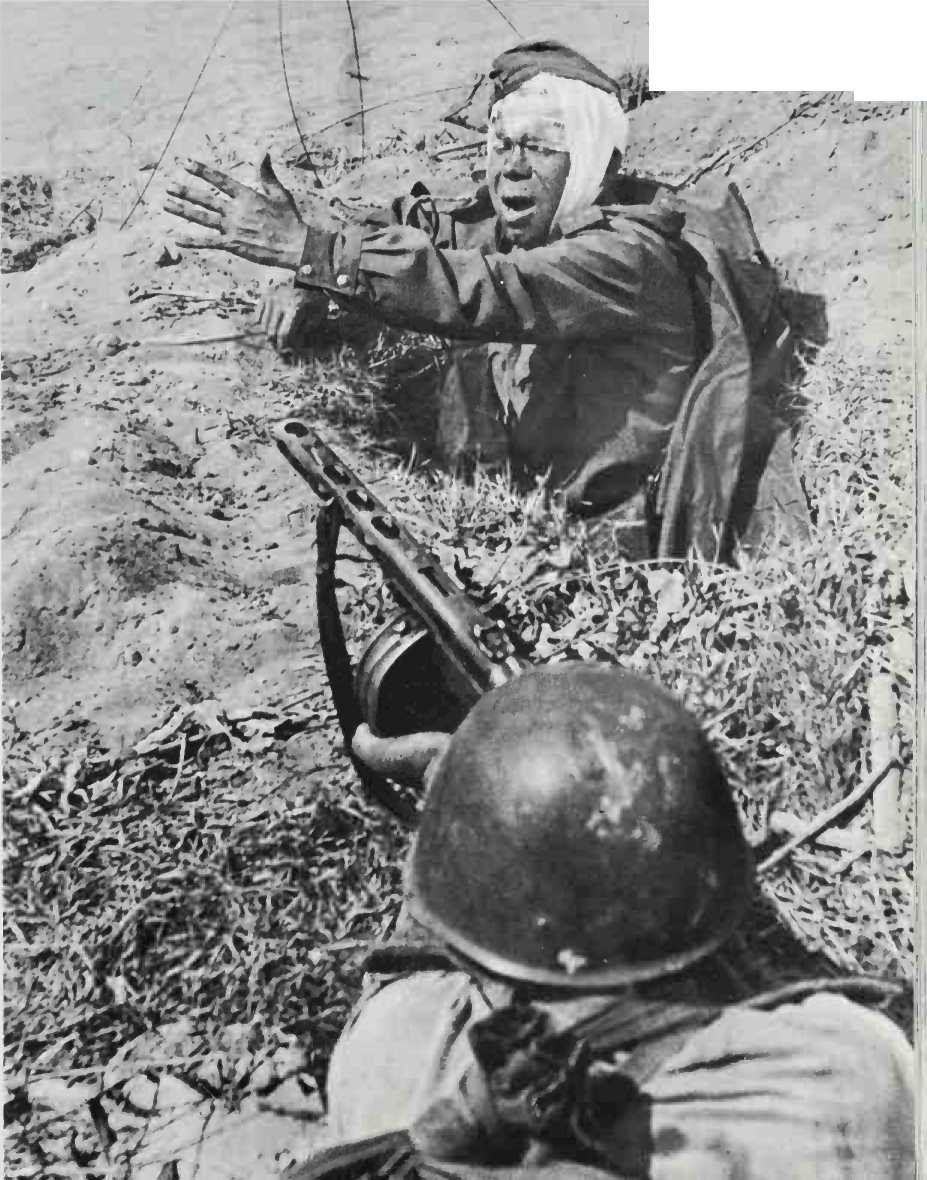
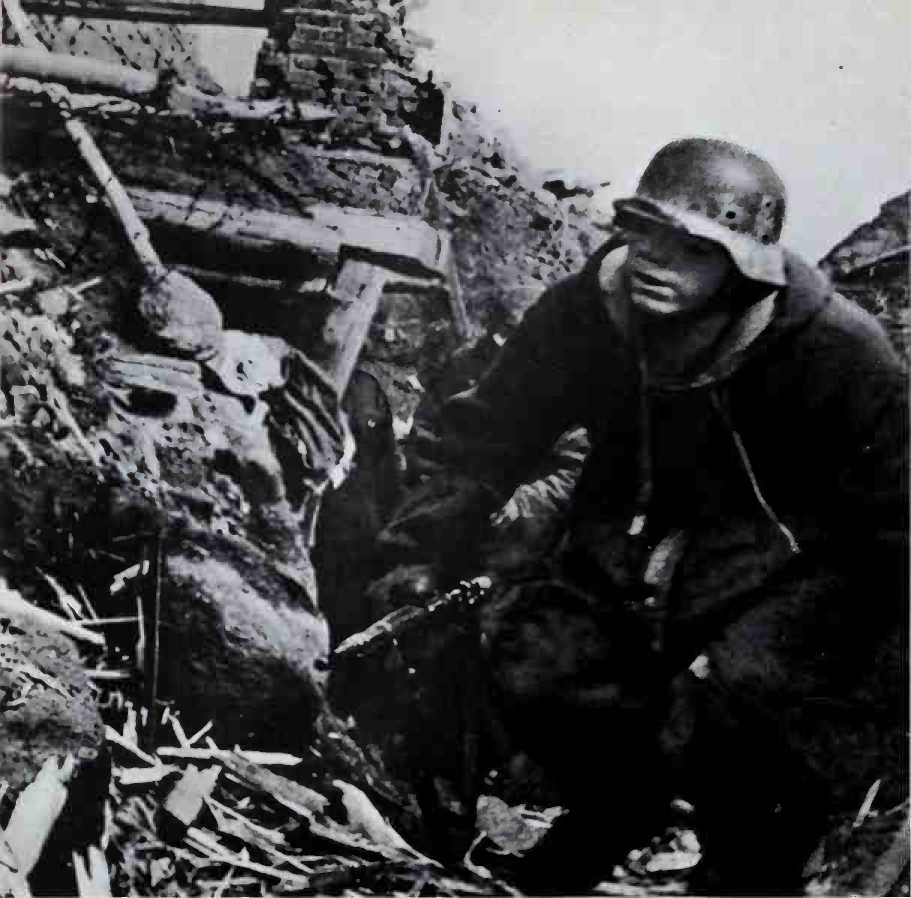
A Working cautiously forward through tangled ruins. The German army was now fighting immense odds, and all Wehrmacht units were inferior in numbers and firepower to the forces facing them.
At Rastenburg, however, Hitler’s answer to the strategic problems now arising was to argue economics and politics: the Donets coalfields, the manganese at Nikopol’, the indispensable iron ore at Krivoy-Rog, Hungarian morale, the opinion of Bucharest, Bulgarian troop positions, Turkish neutrality, and so on.
This reached such a point that at the end of July Manstein was emboldened to write to Zeitzler: 'Tf the Fiihrer thinks he has at hand a C.-in-C. or an Army Group with nerves stronger than ours were last winter, capable of greater initiative than we showed in the Crimea, on the Donets, or at Khar’kov, able to find better solutions than we did in the Crimea or during the last winter campaign, or to foresee better than we did how the situation will develop, then I am ready to hand over my responsibilities. But whilst these are still mine I reserve the right to use my brains.”




 World History
World History




